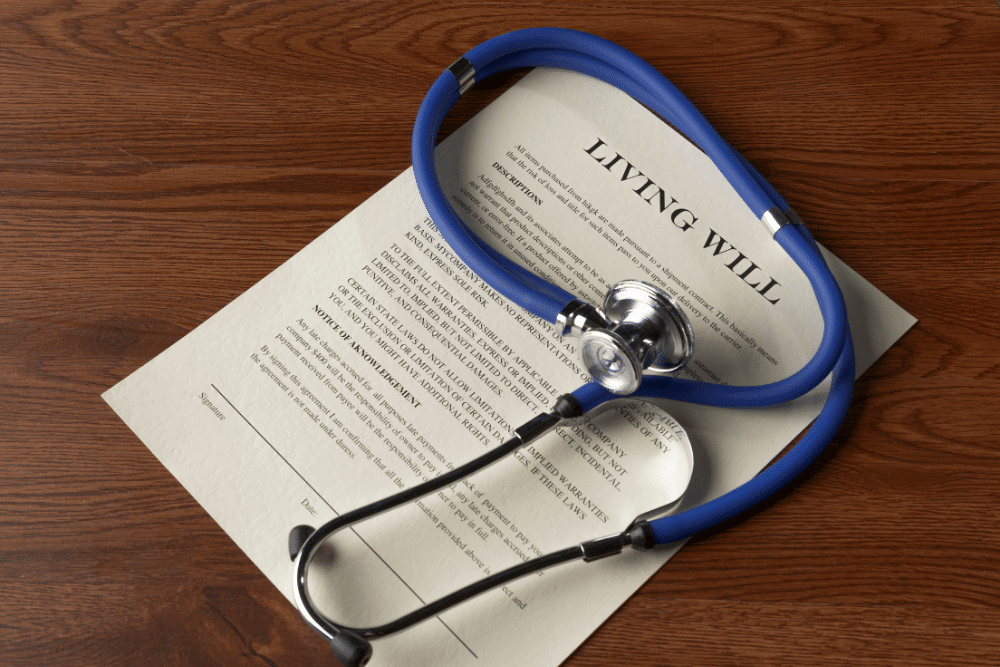A Power of Attorney can be an incredibly powerful instrument, so it’s essential you fully understand the legal rights you’re giving to someone else. You also need to know exactly who will be involved in a Power of Attorney.
Let’s look at the various parties and what their roles are.
Power of Attorney: Parties and Roles
The principal. The principal is the creator of the Power of Attorney. He or she delegates authority to another person who then acts on their behalf.
Why would someone want to do this? If you have a house in another state and want to sell it, you may want to draft a Power of Attorney that allows someone geographically closer to sell the house. If you become incapacitated, you may want a Power of Attorney to handle all of your finances, including paying your bills, accessing your bank accounts, and making other necessary financial decisions.
The agent or attorney-in-fact. The agent – also called the attorney-in-fact – is the entity given the power to act on the principal’s behalf. Anyone who is at least 18 years old and deemed legally competent can be an agent. Certain financial institutions with trust powers can also be agents.
When deciding on an agent for a Power of Attorney, you want to choose the best possible entity for your needs. Some agents are better at handling certain tasks than others.
Regardless of what you need your Power of Attorney to do, though, they should be someone you completely trust to always act in your best interest. For this reason, some people choose their spouse to be their agent. Others choose a family member or close friend. Whomever you choose, make sure they will be able to handle the responsibility that comes with being an agent.

Other Parties in a Power of Attorney
Besides the principal and the agent, there may be other parties involved with the document, particularly in the creation of it.
Notary and witnesses. In order to be properly executed, the Power of Attorney needs to be signed by the principal and two witnesses to the principal’s signature. A notary also has to acknowledge the principal’s signature for the Power of Attorney to be valid under Florida law.
The witnesses are only there to confirm that the principal signed the Power of Attorney in their presence and in the presence of each other, and that the Principal has the capacity to do so. They do not have any power conferred upon them.
Third party. A third party is often referred to as the person or institution the agent deals with on behalf of the principal. A third party could be a bank, broker, property buyer, insurance agent, or anyone the principal grants the agent power to deal with. As long as the Power of Attorney is valid, a third party generally must honor the document.
Attorney. Since a Power of Attorney grants another person so much power, an experienced attorney should be the one to draft it. This way, you can ensure it meets all of your needs. Along with a Power of Attorney, a qualified attorney will also be able to assist you with other important documents to include in your estate plan.
Okay, so now you know who is involved in a Power of Attorney, but are you sure you understand what one actually is? Read on to learn more not only about Power of Attorney in Florida, but also other advance care directives that are vital to protecting your life and legacy.
Advanced Care Directives 101
Advanced care directives refer to your power of attorney, health care surrogate, and living will. These are documents that are super important for appointing one or more fiduciaries during your lifetime.
Power of attorney covers finance, banking, insurance, tax, legal, etc. Health care surrogate covers medical decisions if you cannot communicate for yourself. Your living will relates to the “pulling of the plug” towards the end, eliminating the burden it puts on your family to make such decisions.
Care and thought must go into these documents, and practical insight goes a long way here. Check out this introduction video to learn more:
[Read Transcript]
Now that you have an overview of advanced care directives, let’s take a look at some specific questions and situations that people tend to have.
Guardianship vs Power of Attorney
One of the most common questions estate planning attorneys receive from clients is, “What’s the difference between an appointed guardianship and a designated power of attorney?”
The essential differences are:
- When the appointment happens
- Who selects the person responsible for making decisions on your behalf
You are the one who designates powers of attorney, and you can do it at any point you wish. In contrast, guardianship is often initiated by family members or close friends on behalf of a loved one. To begin the process, they must file a petition with the local county court.
Let’s look at each one in more detail.

Types of Decisions You Want Your Agent to Make
A financial power of attorney allows your agent of choice to manage money-related matters. A health care power of attorney, on the other hand, enables its appointee (or health care surrogate) to make health care decisions.
Scope of Decision-Making Power
While a General Power of Attorney offers up broad-scope decision-making responsibility, you can limit your agent’s authority as you see fit through a Limited Power of Attorney. You may be as specific as you’d like regarding what those decisions are and who should make them.
Deciding when you want your agent(s) to step in makes a difference, too. An agent can make decisions for you immediately and indefinitely through a Durable Power of Attorney. There’s also a regular Power of Attorney (not durable).
The difference is that a Durable Power of Attorney remains effective following incapacity. You may desire for someone to act on your behalf for a particular thing, and do not wish for it to continue indefinitely. You may want a non-durable power of attorney or limited power of attorney.
Appointing Guardianship
A guardianship is ultimately appointed by a probate court, and guardianship is generally classified as one of two types: “guardianship of a person” and “guardianship of the estate.”
Guardianship of a Person
When a probate court grants authorization of one person (the guardianship) to make personal decisions on behalf of another person (the ward), it’s known as the guardianship of a person.
In order for this type of guardianship to be established, a licensed physician must submit documentation of a medical exam. It is only granted when the court finds the individual unable to meet essential requirements for self-care and safety.
The assigned guardianship then assumes the same duties, powers, and rights they would have over their minor children. They are required to report to the court regularly.
Guardianship of an Estate
The guardianship of a person is to a health care power of attorney as the guardianship of an estate is to a financial power of attorney. When the court decides an individual no longer has the capacity to manage his or her own finances, the appointee is assigned to make financial decisions for them.
The process of assigning guardianship of an estate is essentially the same as granting guardianship of a person – and quite often, the judge appoints the same person to both roles during the same court proceedings.
Answering questions of guardianship vs power of attorney, our philosophy at Haimo Law is that planning ahead is always the better option. This gives you the ability to choose who you think will best make decisions for you when you can’t.
If you haven’t thought about who you might consider, the time is now. If you have decided, but haven’t finalized your power of attorney paperwork, reach out. We are here to help!

Florida Health Care Power of Attorney Covers Mental Health, Too
Does Medical Power of Attorney cover mental health? The answer may surprise you.
Florida health care advance directives don’t just cover physical incapacity – they also can be used to address a decline in mental health.
Mental Health Power of Attorney uses a psychiatric advance directive (or PAD). A PAD is a legal document that can:
- Outline an individual’s preferences for mental health treatment
- Appoint a health proxy to interpret those preferences during crisis
- Or both
How Exactly Do PADs Work?
When you are well enough to designate a Mental Health Power of Attorney, you must draft your directives. And it is crucial to document preferences in a clear and concise manner.
If someone experiences a mental health crisis, the appointed health proxy may step in to assist in moving forward with the patient’s directives.
When Does a PAD Go into Effect?
It may be surprising to learn that the only requirement for a Mental Health Power of Attorney directive to go into effect is that your physician decides that you lack competence. If the attending physician isn’t a hundred percent certain that you are unable to make health care decisions for yourself, they may consult another physician.
Once the determination is made, your medical notes are reviewed to ensure you’ve signed them, and your appointed health proxy is immediately notified.
The Health Proxy
Under the Florida statute for Health Care Advance Directives, you may appoint anyone you choose as an agent to make decisions about your psychiatric treatment should you become unfit to make them yourself.
In our state, the health proxy is legally known as a “Health Care Surrogate.” This appointed agent becomes responsible for making decisions about anything that you would decide for yourself if you were well. This agent has a responsibility to act in your best interest.
The statute also permits a person to designate a health care surrogate simply by informing his or her mental health care providers orally. This is actually one of the biggest reasons to set it up ahead of time, since it likely is not a decision that you should be making in the midst of a mental health crisis.
The Declaration
Your PAD has instructions about how you expect your appointed Health Care Surrogate to move forward with your mental health care treatment. These written instructions are called a “declaration.”
Instructions on any aspect of your health care treatment you wish may be added – including advance decisions regarding psychiatric medications, hospitalization preferences, and/or refusal of them.
Regarding any treatments that are experimental or controversial, you must explicitly consent to any of them. Otherwise, health care providers will assume you do not consent to them.
PAD Validity
In order to be a valid, working document, the declaration must be signed by two adult witnesses. One must be someone other than a spouse or blood relative. And neither may be an employee of any of your health care providers.
As with any legal planning document, it is important to periodically review your PAD and to make any necessary updates. This document is valid until you revoke it.
You can revoke your directive in several different ways:
- Making a new document while you are competent nullifies the previous version
- Drafting and signing a statement that you are revoking the PAD
- Telling your health care providers while you are competent
- Destroying the current PAD
But there is one situation in which your directives may not be followed – when you have become subject to The Baker Act.
The Baker Act
The “Baker Act” is the common name for the Florida Mental Health Act, which went into effect in 1971. It is named after Maxine Baker, a member of the Florida House of Representatives, who was known for her advocacy of mental health issues.
The statute allows emergency or involuntary institutionalization and examination of an individual. A person may be held for up to 72 hours in a mental health treatment facility if they meet certain criteria, including:
- Reason to believe the person is mentally ill
- Because of the mental illness, the person has refused a voluntary examination or is unable to determine whether such an examination is necessary
- Without treatment, the person is likely to suffer from neglect or to harm himself or herself or someone else in the near future
The process can be initiated by doctors or mental health professionals, in addition to judges and law enforcement officials.
How the Baker Act Can Affect You
Be aware that if you become subject to the Baker Act, you may be hospitalized and/or treated against your will. This means your mental health care provider may decline to follow your directive should you meet the criteria above. At that point, your health care decisions must be made by a court-appointed agent known as a “Guardian Advocate.”
The need for mental health power of attorney often arises suddenly. Now that you know medical power of attorney covers mental health, you have the opportunity to work with your attorney on drawing up your declaration before it’s too late.
In order to avoid any issues amidst a sudden crisis, we also recommend you make the person you’ve entrusted as your decision maker aware of your intention to appoint them – and that you do this well in advance.

What Happens If You Don’t Have a Living Will?
Designating a health care surrogate is incredibly important. After all, this is the person who will make important medical decisions for you if you become incapacitated due to injury, illness, or advanced age.
But how does this person know how you would have wanted them to act?
Generally speaking, that’s where a Living Will comes in. But what happens if you don’t have a living will?
Problems That Can Arise When You Don’t Create a Living Will
Most of you have probably heard of Terri Schiavo. From 1990 through 2005, she was artificially kept alive in a persistent vegetative state. Throughout this time, her loved ones waged a battle over what was to be done with her.
Terri’s husband argued she should be taken off machines — because she told him that was what she wanted. Her parents said Terri would not have wanted that.
But there was no legal way to know for sure because Terri never created a Living Will. So both sides fought a legal battle for 15 years to determine whether she would live or die.
Obviously, hers was an extreme situation. Sadly, though, it is not unique.
What can happen if you don’t have a Living Will? Here are just a few examples:
Doctors are required to keep you artificially alive
In order to take artificial life support away, the law demands evidence that is clear and convincing. Generally, this means a Living Will stating that you do not want artificial life support used to keep you alive. Even if you verbally tell people you don’t want life support, this may not be enough.
You may be given treatment that goes against your beliefs
For some people, life support is a very individual decision. For others, it is a matter of religion or faith. Being kept artificially alive may even be offensive to you, but without clear proof that you wouldn’t have wanted it, doctors’ hands are tied.
There will be no way to differentiate treatment
A Living Will is where you can spell out exactly what kind of treatment is okay and what isn’t. Without one, you have no voice. And this can go both ways.
For example, say you’re okay with minor life-sustaining treatment. But when talking to family members, you say you don’t want to live “hooked up to machines.” In some cases, their combined statements may be enough to get doctors to completely remove life support.
Loved ones may fight
Without a straightforward record of what you want, family members and other loved ones must make incredibly difficult decisions. What do they think you would have wanted? Did you tell your husband something that is at odds with the beliefs of your parents?
Disagreements and arguments can come up – and may even lead to a prolonged legal battle. This is something you definitely don’t want the people you care about to have to go through.
When there is no Living Will, you essentially lose your voice in your end-of-life care. Don’t put yourself or your loved ones through this. Clearly articulate your wishes in a Living Will, then sit down and talk about those wishes with everyone you care about. This is the only true way to make sure you get a say in what happens to you once you are no longer able to make decisions.
As you can see, there are a lot of serious issues that can arise around advanced care directives. Ultimately, the best way to minimize trouble for yourself and your loved ones is to plan in advance. Make sure you have a clear plan in place.